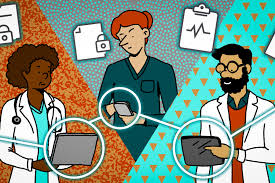Goals
1. Advance Student-Centered, Applied Learning
Provide students from diverse majors with real-world, hands-on research experiences that enhance critical thinking, collaboration, and problem-solving skills. Through long-term, team-based projects, students gain exposure to both advanced technology tools (AI, ML, data analytics) and the complex social realities of health inequity, preparing them for careers in healthcare, data science, social advocacy, and more.

2. Foster Multidisciplinary Collaboration
Bring together students and faculty from from various disciplines to work on shared research challenges. By learning to communicate across disciplines, students develop a more holistic understanding of health equity and innovation—an essential skill for addressing complex, real-world problems.
3. Conduct Research with Relevance
Pursue projects that are co-developed with community partners to ensure that all research efforts are practical, ethical, and responsive to real needs. Potential topics include rural mental health, chronic disease prediction, maternal health disparities, and technology access. Research findings will be designed for real-world application and impact.
4. Empower Community Engagement and Impact
Strengthen partnerships between KSU and local organizations, public health agencies, and healthcare systems. Community partners play a key role in shaping project design and implementation, ensuring that solutions are inclusive, sustainable, and scalable.
5. Promote Equity-Driven Innovation
Develop and test technologies that explicitly aim to reduce health disparities and ensure equitable access to care. Students will explore the ethical dimensions of innovation and build tools that reflect cultural humility, fairness, and inclusion.





